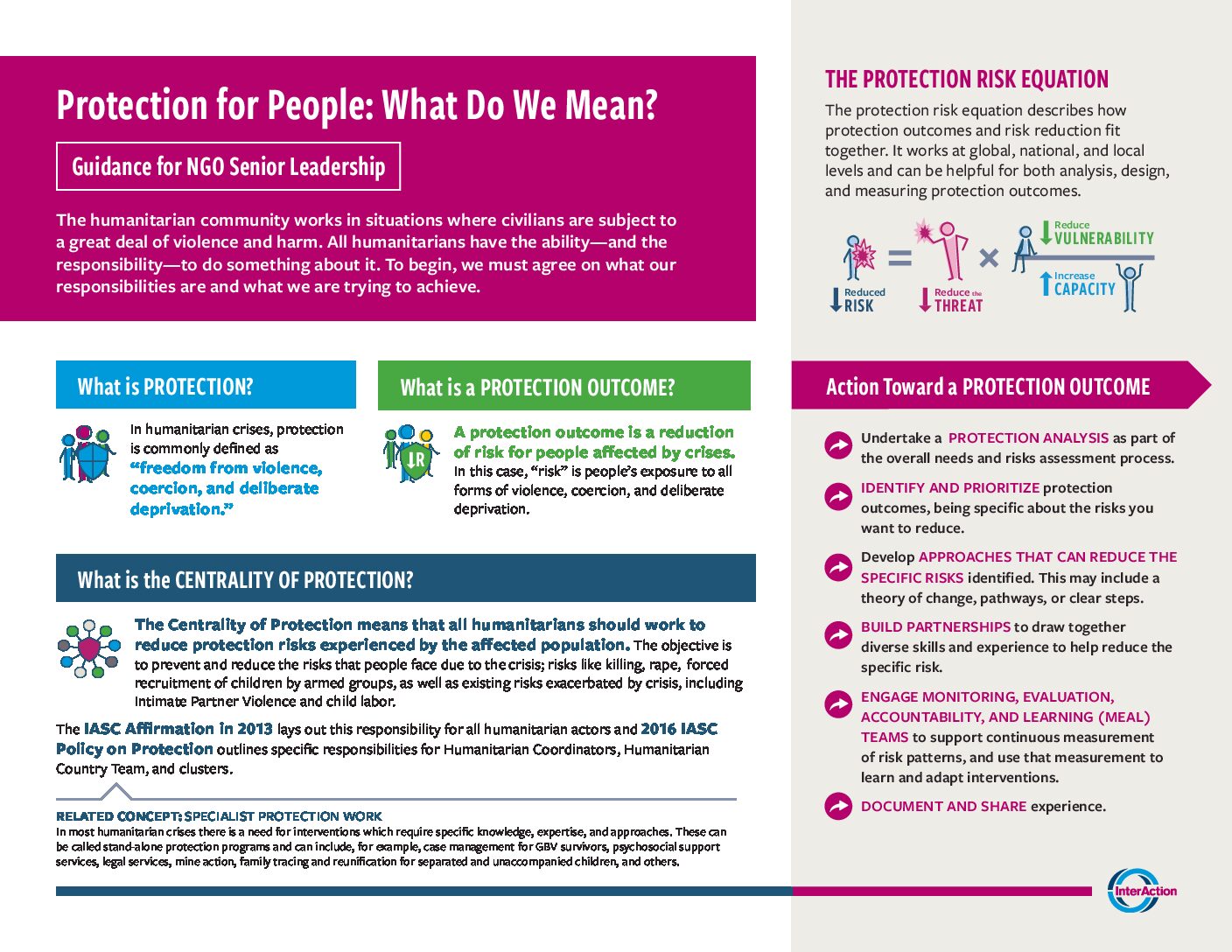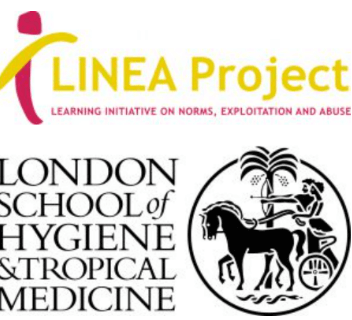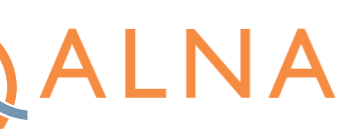Featured Resource
 700
Protection for People: What Do We Mean? Guidance for Senior Leadership
700
Protection for People: What Do We Mean? Guidance for Senior Leadership

InterAction has published and collected resources including tools, reports, project evaluations, blogposts, and others from Members and partners that promote results-based approaches to protection since 2012; all of which can be found in this resource library. To explore practical case examples of RBP in practice, visit the case example page. Background photo By: Simon Moricz Sabjan is licensed under the CC BY-NC 4.0 license.
Supporting the exploration of a key element of results-based protection, InterAction hosted a webinar to unpack how a diversity of actors are conducting continuous context-specific analysis of risk as a basis for strategy development, program design, management of security risks, and program implementation.
To complement and contextualize the launch of the Results-Based Protection video, InterAction also hosted a webinar discussion with RBP Steering Group members and practitioners to unpack what RBP is, how it diverges from standard approaches, and what the practical application looks like in humanitarian practice.
n October 2, the U.S. Institute of Peace (USIP) convened a panel discussion on the new research within Oliver Kaplan’s book, Resisting War, exploring how communities use cohesion and social structures to non-violently influence armed groups. It explores how organization of civilians can implement nonviolent strategies to pressure government troops, or paramilitary or insurgent fighters to limit violence, through cases from Colombia, with extensions to Afghanistan, Pakistan, Syria, and the Philippines, Kaplan’s research shows in some cases, where communities are more organized, there is a 25% regression in violence.
As part of Humanitarian Evidence Week, PHAP convened an online panel discussion with evaluators and practitioners speaking to evidence-based approaches in humanitarian action.
On January 23rd, the Tamarack Institute held a conversation with Michael Quinn Patton exploring his latest book – Principles-Focused Evaluation: The GUIDE, released in November 2017. The webinar explored the principles-focused evaluation (P-FE) approach and its relevance and application in a range of settings.
Given this growing emphasis on data protection and the responsible use of data, InterAction will host Practicing Safe Data: A Roundtable Discussion to delve deeper into these topics.
At this roundtable discussion, InterAction will explore the frontier of responsible data, data protection, and compliance with data regulation, including the European Union General Data Protection Regulation (GDPR).
In 2018, the Learning Initiative on Norms, Exploitation, and Abuse (LINEA) at the London School of Hygiene and Tropical Medicine and the Care and Protection of Children (CPC) Learning Network at Columbia University will jointly host a webinar series exploring social norms as they relate to the fields of gender-based violence, violence against children, sexual exploitation and the abuse of children and adolescents.

This webinar will present key findings from ALNAP’s new study ‘What’s Missing? Adding Context to the Urban Response Toolbox’ and feature presentations from two organizations currently using context-specific analysis tools.

This webinar explored the social norms marketing approach used by the Voices for Change initiative to inspire young people’s attitudinal and behavior change towards women’s role in household decision-making, women’s leadership, and violence against women and girls in Nigeria. The Voices for Change team shared insights around the design of the approach and the monitoring and evaluation system developed to track the audience response to the mass-media communications, changes in attitudes and behaviors throughout the period of implementation, and how the change happened.

"*" indicates required fields